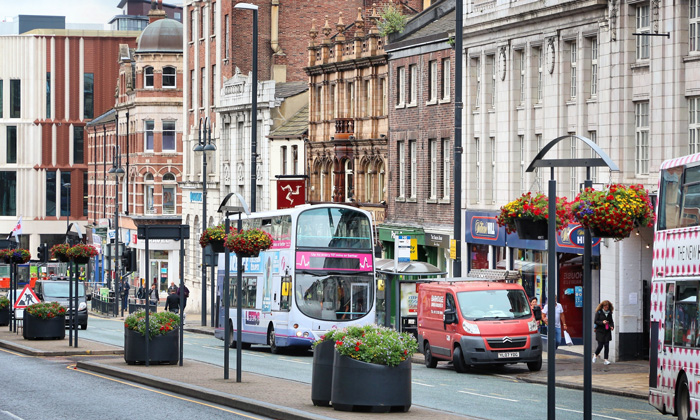First Leeds to invest £71 million in Euro VI engines
- Like
- Digg
- Del
- Tumblr
- VKontakte
- Buffer
- Love This
- Odnoklassniki
- Meneame
- Blogger
- Amazon
- Yahoo Mail
- Gmail
- AOL
- Newsvine
- HackerNews
- Evernote
- MySpace
- Mail.ru
- Viadeo
- Line
- Comments
- Yummly
- SMS
- Viber
- Telegram
- Subscribe
- Skype
- Facebook Messenger
- Kakao
- LiveJournal
- Yammer
- Edgar
- Fintel
- Mix
- Instapaper
- Copy Link
Posted: 18 December 2017 | Intelligent Transport | 2 comments
First Leeds has confirmed 284 new vehicles as part of its commitment to invest in new ultra-low emission vehicles for the city…


The West Yorkshire bus operator, First Leeds, has committed to invest £71 million in 284 new ultra-low emissions buses for the city in 2017. It has agreed with Leeds City Council that these vehicles will be Euro VI, which are compliant with the Leeds Low Emission Zone Proposal. The new vehicles will arrive in the city before the end of 2020.
Paul Matthews, Managing Director at First Leeds, said: “As one of the major bus operators in Leeds, we understand the vital role of finding solutions to reduce air pollution in the city. We recently trialled a new double electric vehicle from local manufacturer Optare, but this technology is still new and developing so we decided to invest in Euro VI engines which are compliant with the Leeds Low Emission Zone proposal.
“Buses with Euro VI engines offer significant reductions in the most harmful pollutants such as nitrogen oxide and are in fact 95 per cent cleaner than some of the vehicles being replaced. However, the pace of change in electric bus technology is staggering and we continue to take a close interest.
“Road congestion continues to be one of the biggest issues facing bus services and so it’s important that alongside this new low emissions proposal we continue to work with the local authorities and other bus operators to encourage less car usage across the city and entice more people to travel by bus.”
Related topics
Air Quality, Fleet Management & Maintenance
Related modes
Bus & Coach
Related cities
Leeds, United Kingdom
Related organisations
First Leeds
Related people
Paul Matthews









Fully agree with Paul Matthews that bus operators can do their bit but local authorities/govt need to do more to keep traffic moving…
As per usual with this company, its the ‘do minimum’ option which will lock them in to high GHG emissions for another two decades